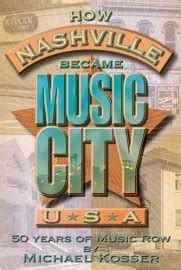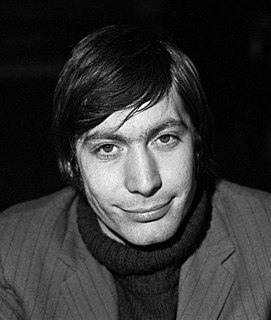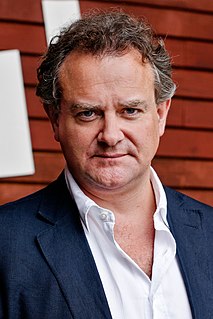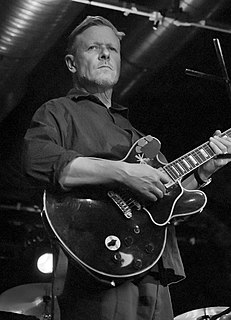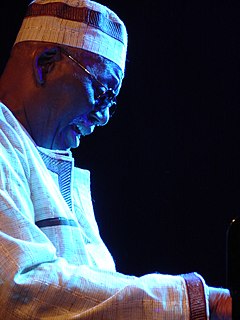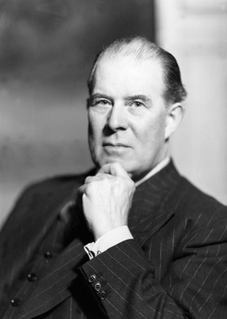Top 385 Chord Quotes & Sayings - Page 7
Explore popular Chord quotes.
Last updated on April 16, 2025.
It's like I'll sit down and put my hands on the piano or the guitar, and then I'll hear a sound or I'll feel a chord that will resonate and then I'll get something happening in my voice. My voice is like a car that I get into and drive but I don't know where I'm going. And I record everything. And often, I sort of get into a state, a creative state that is, where I'm just feeling around melodically, and playing things off the top of my head. Then I go back and listen to it and for the first time, hear what I just did. It's like Elvis has left the building while the thing is happening.
I ask but one thing of you, only one, That always you will be my dream of you; That never shall I wake to find untrue All this I have believed and rested on, Forever vanished, like a vision gone Out into the night. Alas, how few There are who strike in us a chord we knew Existed, but so seldom heard its tone We tremble at the half-forgotten sound. The world is full of rude awakenings And heaven-born castles shattered to the ground, Yet still our human longing vainly clings To a belief in beauty through all wrongs. O stay your hand, and leave my heart its songs!
His musical inspiration operates in a world uncluttered by conventional bar lines, conventional chord changes, and conventional ways of blowing or fingering a saxophone. Such practical 'limitations' did not even have to be overcome in his music; they somehow never existed for him. Despite this - or more accurately, because of this - his playing has a deep inner logic. Not an obvious surface logic, it is based on subtleties of reaction, subtleties of timing and color that are, I think, quite new to jazz - at least they have never appeared in so pure and direct a form.
You've got to shake your fists at lightning now, you've got to roar like forest fire You've got to spread your light like blazes all across the sky They're going to aim the hoses on you, show 'em you won't expire Not till you burn up every passion, not even when you die Come on now, you've got to try, if you're feeling contempt, well then you tell it If you're tired of the silent night, Jesus, well then you yell it Condemned to wires and hammers, strike every chord that you feel That broken trees and elephant ivories conceal
The band and I were leading at a Youth Specialties convention. We were asked to back up Matt Maher for one of the sessions. Matt handed us the chord charts and, with less than 5 minutes of practice, we were playing it live. I fell in love with this song immediately. You can't hear the message of God's sufficient grace too many times. Matt is a great lead worshiper and is a part of Life Teen, a growing worship movement in the Catholic Church.
I still feel like if I can get a song to work with, say, a basic beat, a rhythm, some chord changes, and a melody, a vocal melody - if it works with that, then I feel it's written and there's something there. So I intentionally don't get involved with arranging stuff or fussing over the sounds and the edits and the beats too much, at least not in the beginning, because I feel like then you can fool yourself that you've got something there, when you might not.
No joy for which thy hungering heart has panted, No hope it cherishes through waiting years, But if thou dost deserve it, shall be granted For with each passionate wish the blessing nears. Tune up the fine, strong instrument of thy being To chord with thy dear hope, and do not tire. When both in key and rhythm are agreeing, Lo! thou shalt kiss the lips of thy desire. The thing thou cravest so waits in the distance, Wrapt in the silences, unseen and dumb: Essential to thy soul and thy existence-- Live worthy of it--call, and it shall come.
Gradually, at various points in our childhoods, we discover different forms of conviction. There's the rock-hard certainty of personal experience ("I put my finger in the fire and it hurt,"), which is probably the earliest kind we learn. Then there's the logically convincing, which we probably come to first through maths, in the context of Pythagoras's theorem or something similar, and which, if we first encounter it at exactly the right moment, bursts on our minds like sunrise with the whole universe playing a great chord of C Major.
The white music was melodic and pretty, and you had beautiful women's voices like Gogi Grant and even the Andrews Sisters. Then I went directly to rhythm and blues, which had beautiful voices but not much melody in particular and pretty much the same chord pattern. I loved it, I was entrenched in it, but then folk music came in the middle of that for me, and made its own path. And it was part of the rebellion against bubblegum music, or music that is pretty but doesn't say anything.
Especially on Broadway, composers and lyricists fretted over their creations, obsessed over every rhyme, every critical chord or interval. The stakes were so high. On Broadway, people were watching and judging, especially newspaper critics who knew a thousand ways to slice and dice a songwriter for the entertainment of hundreds of thousands of faithful readers. There was no anonymity for the Broadway songwriter. Even the best could find themselves stripped naked the morning after by the tastemakers and their readers.
It's never happened to me before, in my career, and never will again. It's a one-off experience. It's a rare treat to have a cast together for six years. Crews come and go, and a few of them have been there throughout, but not many. It's rare, in my experience, after 26 years, to have had a proper company in a show that enjoys each other's company, and who is such a fine bunch of people and actors. To have struck a chord with people, and to have had that combination, is extremely rare.
There was as big a reaction after the revelations about Assad's chemical weapons. Nevertheless, that photograph did strike a singular chord. Which leads us to a larger fact: we don't understand why certain photographs create such an upheaval in one's soul. You look at them and go, "Oh my gosh." And that doesn't happen with television. It's unique to photography. Photographs are unique in that they are a frame abstracted out of reality, out of, in this case, a civil war. A single event can carry so much weight. And that is extraordinary.
You can't ask me to explain the lyrics because I won't do it...I always believed that I have something important to say and I said it. That's why I survived because I still believe I've got something to say. ... I don't like overdubs, never liked them. ... The music business doesn't interest me anymore...Don't the people you're around shape the music, is that what you're saying? Everything does. ... I'm not joking around when I've said occasionally, trying to learn how to play a D chord properly has been a very big thing for me.
I love playing all kinds of roles. I hope it doesn’t sound too pretentious, but I always feel human nature is like a piano, and there are 88 keys, and there are some white keys and some black keys, and each character is a different chord on the piano. Basically, I hope that in the course of my life, I will have played all 88 keys. So, I’ll have played heroes and villains and princes and kings and warriors and beggars and thieves and lovers and fathers and wizards and all of those things. That is why I’m an actor… I love studying people.
Paul Simon once said that a songwriter's supreme challenge was being complex and simple at the same time-writing songs with lasting depth that are also simple enough to be memorable. Jimmy Van Heusen was a master at this kind of song. His music was complex, with deeply rich chord changes any jazzman can embrace, but also possessed catchy, crystalline melodies of exceeding sing-ability. His songs were meant to be sung, not just listened to, and they were sung by the best, with Frank Sinatra and Bing Crosby at the top of that list.
I like loud electric guitars because I like how you can just lose your entire being in the sound. But I can't find myself in a situation where our band Swans is doing typical chord progressions - it just seems cliché to me. Even changing chords sounds like a cliché sometimes, though it happens occasionally in our music. But you find ways to push yourself into the sound through repetition. It doesn't stay the same. It morphs constantly.
These days I keep a journal, so I'm constantly sketching down my thoughts, or lines that come to me...ideas for songs. And then when I have a moment to myself, I'll sit down with my guitar and open my journal, and start kind of massaging things together, and see if a song takes shape. Or sometimes, I'll just be hanging out with my guitar and come up with a chord progression or a lick, and that'll sort of sit around for a while waiting to marry itself to some words. So it's sort of haphazard and it's like...junk culture. I go around finding shiny objects and I glue them together laughs.
This pride of race is a quality which the German, fundamentally, does not possess. The reason for this is that for these last three centuries the country has been torn by internal dissension and religious wars and has been subjected to a variety of foreign influences, to the influence, for example, of Christianity-for Christianity is not a natural religion for the Germans, but a religion that has been imported and which strikes no responsive chord in their hearts and is foreign to the inherent genius of the race. (13th February 1945)
At first I didn't understand what [Thelonious Monk] was doing, but I went back again, and what I can say about Monk is that I heard ancient Africa in his music. When he played, it was like a ballet. He captured the sound of the universe. Monk could take a triad, a simple chord, and make it sound dissonant. I'm sure that element he had in his piano was part of the two years he spent traveling with his mother in gospel music in the tent shows.
Jim had melodies as well as words. He didn't know how to play a chord on any instrument, but he had melodies in his head. To remember the lyrics he would think of melodies and then they would stay in his head. He had melodies and lyrics in his head, and he would sing them a cappella, and we would eke out the arrangements.
There are some places which, seen for the first time, yet seem to strike a chord of recollection. "I have been here before," we think to ourselves, "and this is one of my true homes." It is no mystery for those philosophers who hold that all which we shall see, with all which we have seen and are seeing, exists already in an eternal now; that all those places are home to us which in the pattern of our life are twisting, in past, present and future, tendrils of remembrance round our heart-strings.
T-Mobile is a young, consumer-driven business, and the average age of my customer outside of Bellevue is 27 or 28. They like outspoken, frank discussion. There was an event where it started to come together, I thought the audience would only care about the MLB guys, but they wanted to know what was on my mind. And I literally snapped about the state of the wireless industry. Over the next 24 hours, there was a lot of stuff that was coming out of my mouth that was meant to stay in Vegas, but it hit a chord. It was an action statement for me that I was going to fix this industry.
Instead of thinking in terms of chords, I think of voice-leading; that is, melody line and bass line, and where the bass line goes. If you do that, you'll have the right chord. [These voices] will give you some alternatives, and you can play those different alternatives to hear which one suits your ear. Keep the bass line moving so you don't stay in one spot: if you have an interesting bass line and you roll it against the melody, the chords are going to come out right.
With most electronic music I hear now, the things I like will be the things that have soul. It has to have a feeling in it, where it feels warm, or feels epic. I like to play with that in my music as well, there will always be a piano chord or something underneath it to make you feel at home. I always try and make sure even with vocals and layering that you still feel like you know me, no matter whether you're into grime or hip hop.









